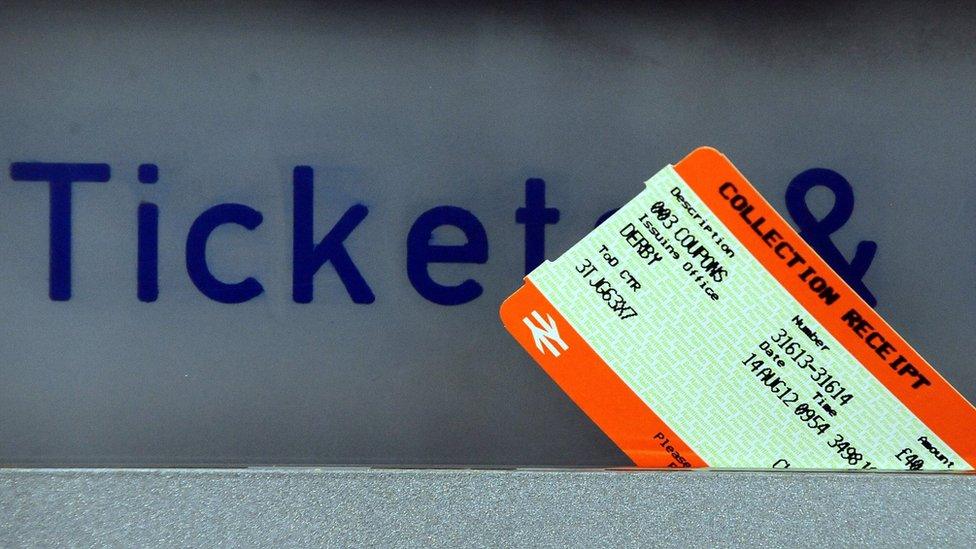Commuters share their rail woe
- Published
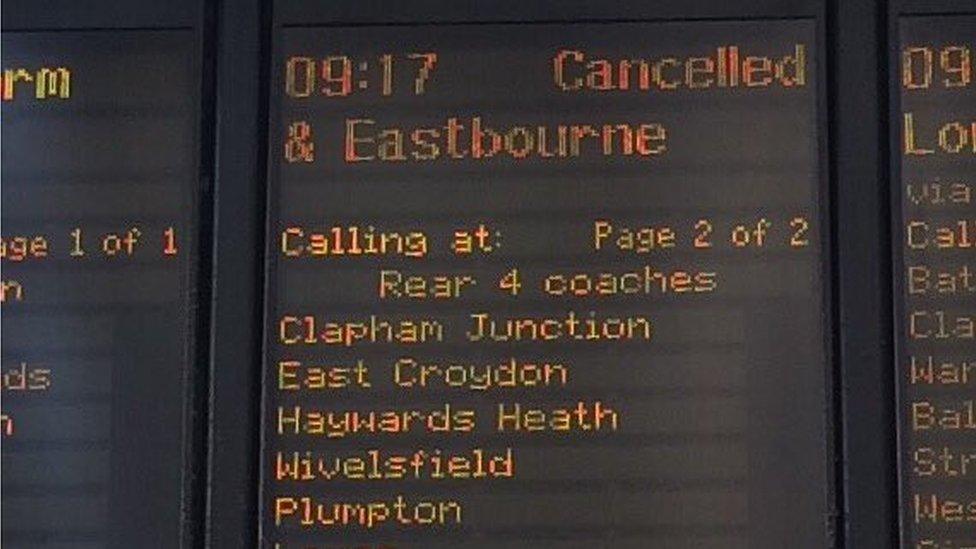
Commuters spend more than a tenth of their disposable income on annual rail season tickets, an investigation has found.
BBC News took a snapshot of this morning's rail reality, hearing from travellers across the South East.

06:39 BST, Seaford station
BBC Sussex reporter Simon Jenkins started the morning at Seaford station, where a replacement bus service was in place until the 06:54 train to London.
It's a place where tensions have previously run high.
In July, passengers there confronted Southern rail bosses over timetable cuts.
Last week, commuters on the replacement bus from Seaford to Lewes were still disgruntled about the situation.
Passenger Francis Maloney said he was "hacked off" with the situation. Fellow unhappy passenger Natasha Ellingham said: "Since April, I've had to say goodnight to my daughter on the phone".
These commuters share their frustrations with the BBC

07:00 BST, Guildford station
BBC Surrey reporter Jack Fiehn started his journey at Guildford station with few problems. "It's relatively quiet here at the moment," he said.
A fellow passenger agreed, saying he was "quite happy" with the service.
"On the whole it's not too bad. It's pretty reliable and I find the connections work OK".

07:43 BST, Arundel station
It's not only commuters who have been affected by strike action on the Southern network. Heather Barrie runs Harrie's coffee bar at Arundel station in West Sussex.
Last month, Southern, which operates services from Sussex and Surrey to London, Kent, Hampshire and Buckinghamshire, brought in a reduced timetable in response to continued cancellations and delays, blaming issues with crew availability.
Ms Barrie says the "inconsistent" service has led to some people working from home for some of the week. "If you sell one or two cups of coffee less every day, and that goes on for five or six months, it's going to have an impact on my turnover".
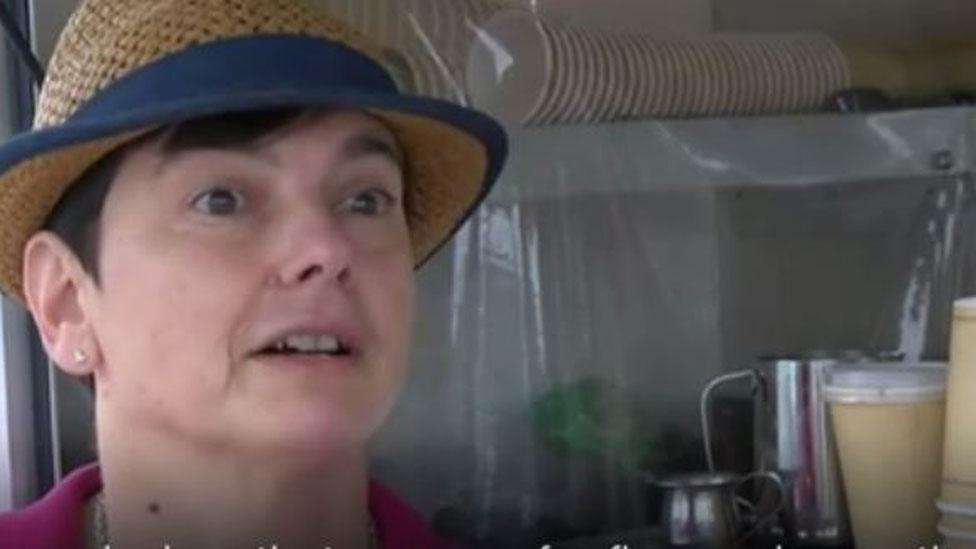
Coffee-seller Heather Barrie has found fewer people are buying beverages from her

08:19 BST, Seaford to London train
By the time the train passed over the M25 it was standing room only.

08:32 BST, Arundel station
Commuters at Arundel said they were frustrated.
One man said he was annoyed Southern and said the RMT union "can't sit round a table and come to an agreement".
"Even if they're at loggerheads surely there's someone to say 'here's what you want and here's what we need' and find something in the middle. I'm just a bit disappointed they can't put the passengers first, which is surely what they want in the long term".

09:07 BST, London Victoria station
Simon Jenkins, who'd arrived safely at London Victoria, has an unhappy surprise. His return service has been cancelled, leaving him with a complicated and tiresome journey home.
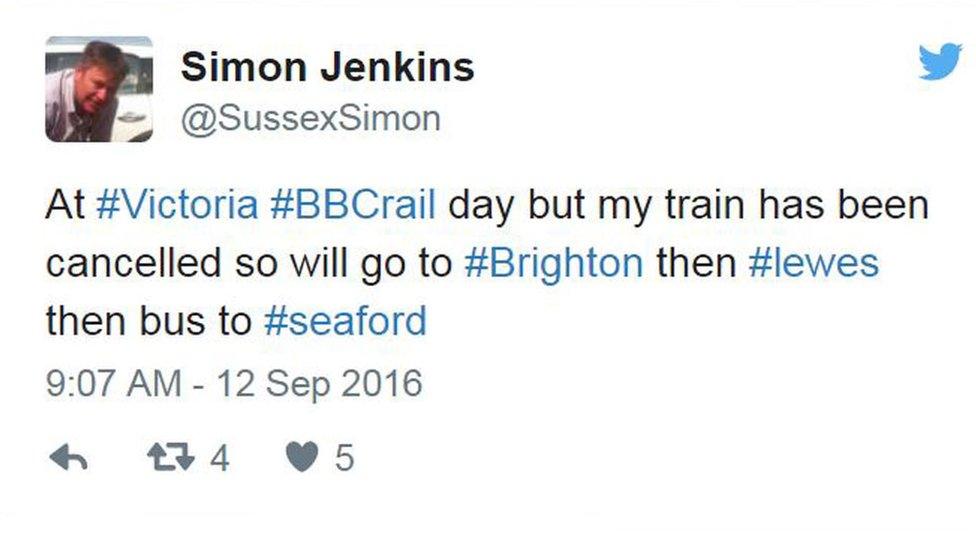

09:09 BST, Leatherhead station
Not everyone's unhappy. Joe Pocock said his train left the station two minutes late but arrived on time. "Plenty of empty seats," he noted.
Another commuter at Leatherhead called his experience "excellent" as "Southern trains were remarkably easy to get on and the ones I'd chosen to take were on time".


Matt Steel gave up his job in London because the commute from Horsham was so difficult. He now cycles to work and sees more of his young family
One person who's had enough is Matt Steel. His experience of commuting from Horsham to London became so bad he left his job to find one closer to home. He says he "never saw his young family" and now cycles to work. Hannah from Uckfield contacted the BBC to say she's considering doing the same.
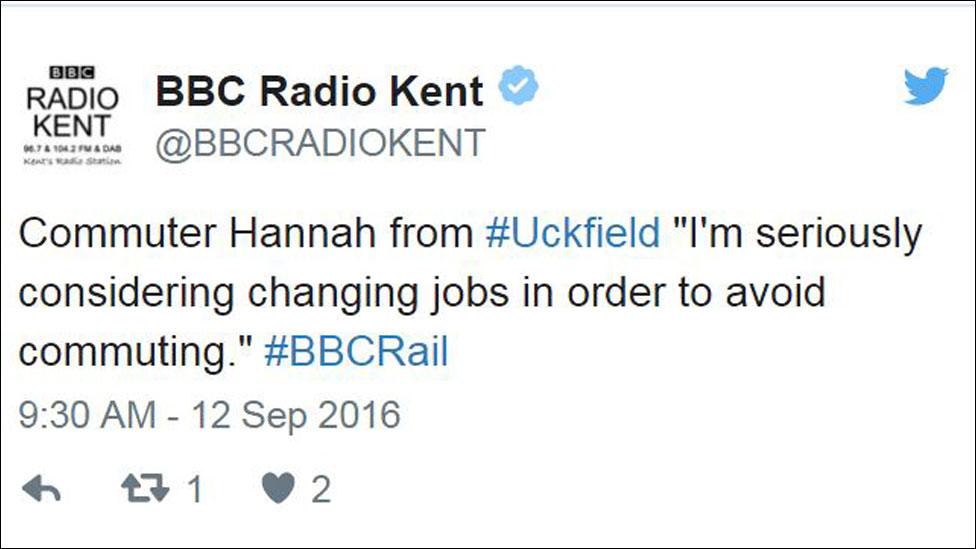
10:05 BST, BBC Sussex and BBC Surrey radio
Paul Cox from the RMT union went on BBC local radio to answer questions from listeners. He says plans by Southern to introduce "on-board supervisors" to replace conductors could mean disabled people aren't helped to board the train.
Southern and the RMT union are in dispute over the role of conductors and the introduction of more Driver Only Operated Trains.
Until it's resolved, delays, replacement bus services and annoyed passengers are likely to be a daily feature of many commutes.
- Published12 September 2016
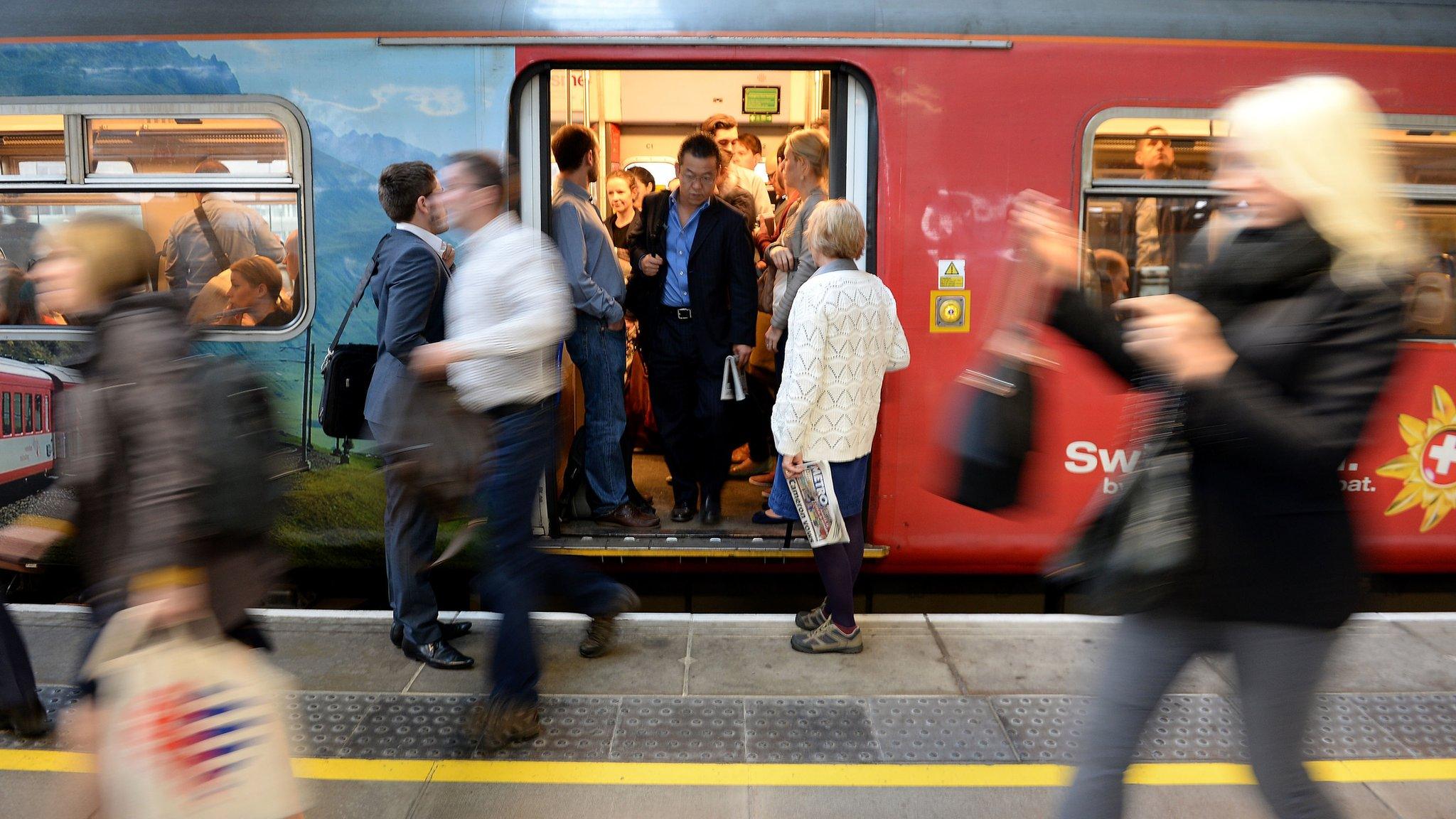
- Published16 August 2016
